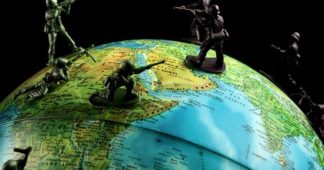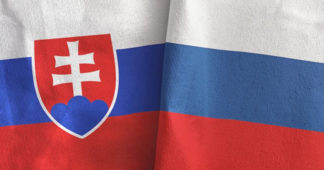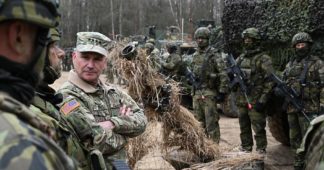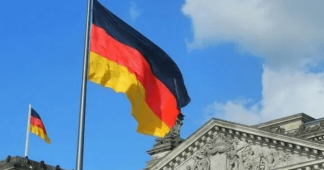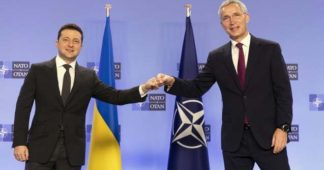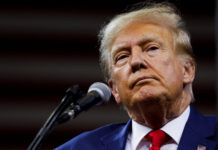June 9, 2024
A new survey by the Institute for Global Affairs, part of the American political risk consultancy Eurasia Group, found the overwhelming majority of Western public opinion is in favour of ending the war in Ukraine through negotiations.
A second survey released for the 80th anniversary of the D-Day landings in Normandy that turned the tide of WWII found that the public significantly underestimate the role the USSR played in winning the war against Hitler.
The Institute for Global Affairs found a dramatic 94% of Americans and 88% of Western Europeans are in favour of Nato member countries advocating for a negotiated settlement to the Ukraine war. This overwhelming majority contrasts sharply with alternative scenarios, such as “Weakening Russia” or “Restoring the pre-2022 borders of Ukraine”, which received support from less than 20% of respondents from both regions.
The results of the survey clash directly with the rhetoric from both US and EU political leaders that have said repeatedly the West should support Ukraine’s military struggle against Russia for “as long as it takes” and have promised significantly military and financial help over the long term.
Nato is shortly due to meet to celebrate the 75 years since the military alliance was founded. Secretary General Jens Stoltenberg has proposed setting up a $100bn fund to ensure Ukraine is amply supplied and has more predictability in Western support in what is expected to be a long war. However, due to the reluctance of Nato members to commit these resources, Stoltenberg last week revised his plan down to a commitment of €40bn a year, on a par with annual aid sent to the Ukraine over the last two years ahead of the Nato summit.
In contrast to the Western political leadership, the Institute for Global Affairs’ data indicates the Western public has a strong preference for avoiding further escalation and steering clear of a direct conflict between nuclear-armed powers.
President Vladimir Putin has repeatedly “reminded” the West that Russia is a nuclear power and recently ordered snap nuclear missile drills. Last week some US senators suggested that the US respond by redeploying the US arsenal of tactical nuclear missiles in response as part of the creeping escalation in the war. French President Emmanuel Macron has added to the tensions by suggesting France send its own troops to Ukraine as “instructors,” provoking strong protestations from the Kremlin.
The Institute for Global Affairs has also provoked criticism, highlighting that there little public debate on the Western commitment to supporting Ukraine and eliciting complaints that the “political elites are making decisions that hurt the public.” The survey comes as Europe goes to the polls to elect a new European Parliament where the right is expected to dramatically increase its share of seats and where many parties have campaigned on a platform of repairing relations with Russia and ending the war in Ukraine.


Who won WWII?
A second survey, by YouGov, on the anniversary of the Normandy landings highlighted the changing perception of Russia’s role in the second world war, which is increasingly seen as a British victory for the British and a US victory for the Americans.
The USSR lost by far the most people in WWII: a total of 25mn, of which 13mn were Russians, against the 500,000 British dead and 400,000 American dead. Over 85% of German losses were on the eastern front, where fighting was brutal, whereas Europe was quickly overrun by the Nazi forces and the Allies forced to retreat, such as in the famous Dunkirk evacuation of British forces.
While the YouGov survey found that some 45% of European respondents in 1945 acknowledged the Soviet Union’s leading role, that share has fallen dramatically since. Critics of this change blame Hollywood’s portrayal of the war with countless movies glorifying Allied victories, but underplaying Russia’s role in the fighting. Hollywood actor Tom Hanks, the star of one of the most iconic movies, “Saving Private Ryan,” was invited to the D-Day celebrations. However, Hollywood has made only one significant blockbuster movie glorifying the heroism of the Russian forces in the east: “Stalingrad”, starring Jude Law, lionises the legendary sniper Yuri Zaitsev, who was one of Russia’s most famous war heroes.
The differences in perception is the cause of political friction between Russia and the West, as for Russians the victory over the Nazis was one of Soviet Russia’s greatest achievements and a source of pride in what Russians refer to as “the Great Patriotic War.” An entire generation of young men were wiped out in the fighting and the annual victory day is one of the most poignant celebrations on the Russian calendar – it has been repeatedly snubbed by Western leaders in recent years. Thousands throng on the streets on Victory Day carrying photos of their relatives that fell in the fighting. The phrase “thank you grandfather” is commonly daubed on the photos and cars during the celebration.
This year, Russians will take special umbrage at the D-Day celebrations, where Ukrainian President Volodymyr Zelenskiy was invited to represent the Soviet allies who fought in WWII. Putin has gone out of his way to link the current battle in Ukraine with Nazism and so link the campaign with one of the most politically evocative common memories that Russians share.
And Putin’s job has been made easier as Ukraine does have a far right problem with groups like C14 and the Azov battalion that openly make use of Nazi symbolism and expound extreme ideologies. Politically, however, the far right groups scored only 4% in the last elections and Zelenskiy himself is Jewish.
According to the YouGov data, Britons are notably more inclined than their international counterparts to credit the United Kingdom with the largest contribution to Hitler’s defeat. The survey found that 39% of Britons believe the UK played the most significant role, compared to 20% who credit the United States and 15% who believe the Soviet Union deserves the most recognition.
In contrast, the American public overwhelmingly sees the United States as the key player in the European theatre. A substantial 59% of Americans believe their country did more than Britain or the Soviet Union to defeat the Nazis. Meanwhile, 13% attribute the greatest contribution to the Soviet Union, which suffered an estimated 27mn casualties, the highest of any nation during the conflict, and only 6% to the UK.
German opinions are more divided, with 34% of Germans saying the Americans were the most influential in ending the war, closely followed by 31% who credit the Soviet Union. A mere 6% of Germans believe the UK’s efforts surpassed those of the US or the Soviet Union.
Today, the French public also predominantly credits the US, with 47% asserting that America was the crucial Allied force, while 17% believe the Soviet Union played the most vital role.
The results of the recent surveys contrast sharply with historical sentiment in France; an IFOP poll from May 1945 indicated that 57% of French citizens at the time thought the Russians were the most important Allied force, compared to 20% for the US.
Interestingly, French views on Britain’s contribution have remained relatively unchanged over the decades. In 1945, 12% of French respondents believed the UK played the largest role; today, that figure stands at 10%.
The survey’s findings illuminate the differing national narratives and historical memories that continue to shape perceptions of World War II. As the world commemorates D-Day, these varied perspectives remind us of the complex and multifaceted nature of history.


We remind our readers that publication of articles on our site does not mean that we agree with what is written. Our policy is to publish anything which we consider of interest, so as to assist our readers in forming their opinions. Sometimes we even publish articles with which we totally disagree, since we believe it is important for our readers to be informed on as wide a spectrum of views as possible.

